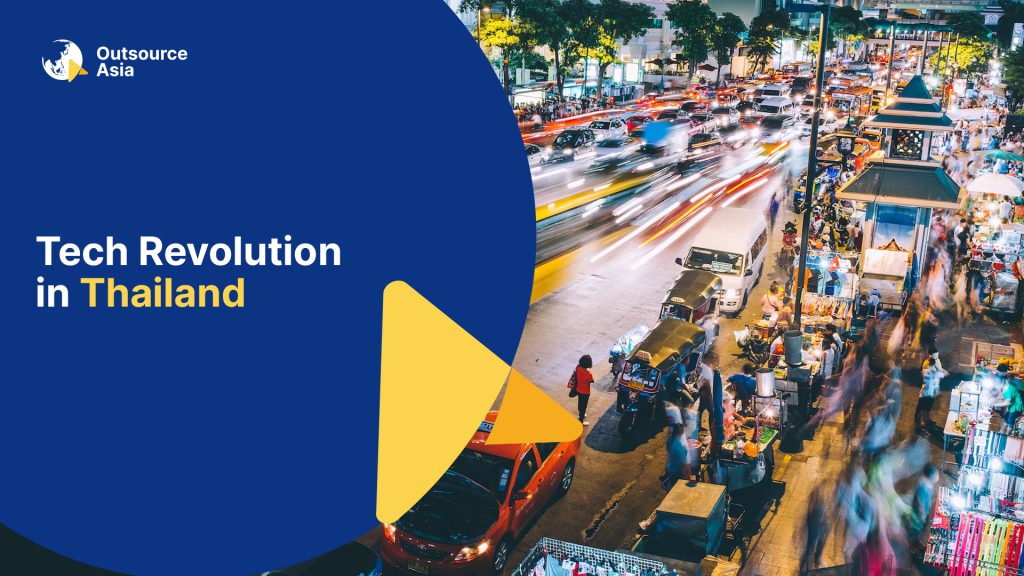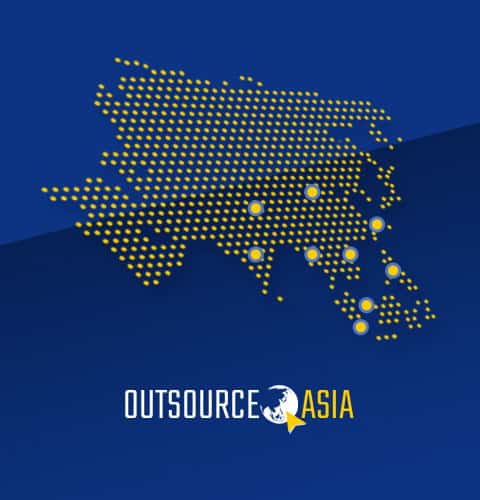
Tech Revolution in Thailand
Rapid technological development has brought about AI and automation on an unprecedented scale. It’s estimated that 40 to 50 percent of workers with low education are at risk of automation by the mid-2030s.
This article on the tech revolution in Thailand examines aspects of the post-pandemic era, examining how organizations respond towards the impact of automation and technology on job availability. It also examines decisions by policymakers and business leaders on aspects of cybersecurity management and data and privacy protection.
Background
According to new data from the McKinsey Global Institute, consumer consumption in Thailand might rise dramatically over the next decade, from $120 billion to $410 billion. Up to 90% of Thailand’s population could be classified as “consumption class” by 2030, meaning they spend more than $11 per day in purchasing power parity terms and can afford not only necessities like food and accommodation, but also discretionary expenditure. The emergence of these new consumer segments will have an impact on the consumer landscape in Thailand:
- Smaller households. The average Thai household size is 20% lower than two decades ago, reflecting social changes such as people delaying marriage and having (fewer) children. More people are living alone, spending more time on the internet, and owning more pets in the last five years.
- Aging. Thai population of senior citizens is expected to grow by 40% during the next decade but consumption will double especially for housebound older people during the pandemic.
- Women empowerment. With a female-to-male labor-participation ratio of 78%, women consumers will contribute to Thailand’s GDP $80 billion per year by 2030.
- Segment of one. Data analytics helps to zero in on what Thai consumers really want, fueling customization of goods and services across industries.
- Eco-responsibility. Asia is at the forefront of climate risk, responsible for two-thirds of global economic disruption due to climate change. Sustainability is beginning to affect the purchase decisions of Thais as it has announced a ban on single-use plastic bags in 2020.
Impact of Automation and Technology to Job Availability
Thailand 4.0 initiative is the government’s new economic strategy for transforming to a high-income country, with robots and digital technologies among the new fields earmarked to lead the way. Despite launching the project in 2016, it is still not comprehensive enough to meet the ASEAN state’s development objectives. As a result, Thailand is on course to lose up to three million jobs over the next 20 years. The country would face enormous employment losses if it fails to adapt emerging disruptive technologies, according to the Thailand Development Research Institute (TDRI) President Somkiat Tangkitvanich.
In addition to potential job losses, Somkiat believes that the government’s goal of achieving annual economic growth of 5% would be impossible to achieve. If Thailand’s level of technological skill continues unchanged, he estimates that the country’s GDP will only increase by 2.1% each year in the future. While this would encourage more and more firms to integrate automated technologies into their production lines, the biggest casualties would be 16.9 million unskilled Thai employees which is 45% of the overall workforce. Artificial Intelligence (AI) systems will also replace 70% of jobs, leaving 8.3 million Thais in high-risk occupations in the next one to three years.
According to International Labor Organization (ILO), the Thai manufacturing sector by-and-large should stop relying on a model based on semi- and un-skilled labor with limited technological investment. The government should accelerate investment in human capital and technological upgrading like in Singapore and South Korea. As automation and the use of robots expand and more lights-out factories become the norm, demand for lower-skilled labor will wane. Thai workers should be equipped with the skills necessary to remain employable in the manufacturing industry of tomorrow and to prevent decline in overall labor productivity and the threat of premature de-industrialization.
Cybersecurity Management and Data and Privacy Protection
Cybersecurity threats and challenges have more than doubled since the COVID-19 outbreak as firms have shifted to online platforms and work from home arrangements have been implemented, said PwC Thailand. The emergence of Internet of Things and the popularity of mobile banking, e-commerce and digital government services have also led to an increase in the number of cyber-attacks. About 35% of businesses in Thailand said their most significant cyber breach cost $1 million or more in damage.
Organizations in the New Normal should consider cyber insurance plans and investments in cybersecurity to decrease vulnerability from online criminals, the report said. There should be plans to accelerate digitization of operations in order to increase productivity and customer service as a result of full-time remote working.
The Thailand parliament announced the passage of a contentious cybersecurity law in 2019 to improve cyber-resilience and to bestow sweeping powers to state cyber agencies with sweeping powers, according to OpenGov Asia. The new legislation authorizes the National Cybersecurity Committee (NCSC) to summon individuals for questioning and enter private property without a court warrant. Also, a new Cybersecurity Regulating Committee will have broad authority to examine computer data and networks, copy information, and seize computers and other equipment.
Learn more about offshore outsourcing and how you can maximize it for your business. Today’s Third Wave of Outsourcing no longer focuses on cost-cutting alone. It’s a race to find the best talent from all over the world.
Learn more about Third Wave Outsourcing and how you can maximize it for your business. Don’t remain in the ways of the past. Join the global entrepreneurs who have access to the best global talent. ORDER THE E-BOOK NOW.

